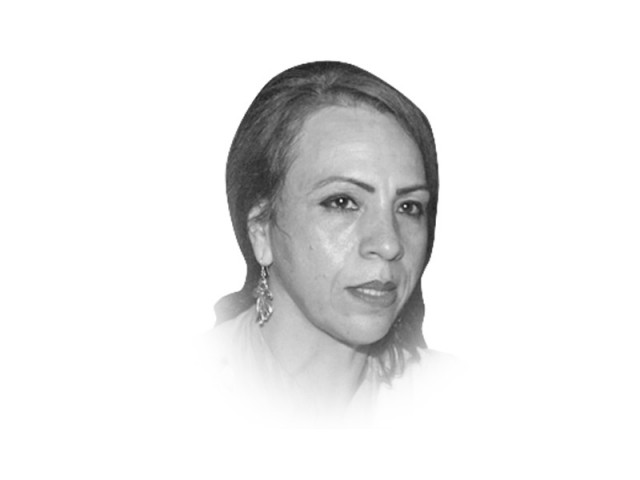The dismal state of human rights in Pakistan
Women are the single largest group whose fundamental rights are systematically threatened by the state and society

The dismal state of human rights in Pakistan
Within this global context of integrated economies and inequalities, there was not much to celebrate on International Human Rights Day this year at both the international and national levels. The unjust social and economic development of the country, with its fast-diminishing capacity to deliver to ensure fundamental rights, protection and security to citizens has progressively deteriorated. Neoliberal economic policies have engendered multiple vulnerabilities in our society. It is the socially weak and marginalised who are affected the most by economic disparities and the poor performance of the state when it comes to ensuring rights of citizens. Those whose rights are at greater risk include the poor in general, women, religious minorities, people with disabilities, IDPs, transgenders, bonded labourers, child labourers, people with HIV/AIDS, sex workers, people in prisons and shelters, and people living in conflict zones and disaster-prone areas.
Women are the single largest group whose fundamental rights are systematically threatened by the state and society. The dual system of patriarchy and capitalism positions them as second class citizens legally and socially. This leads to a low investment in their human capital by the family and the state, and creates the basis for gender disparities. For example only 45 per cent of Pakistani women are literate compared with 69 per cent of men. They have the worst health status in the world. We are losing 276 women per 100,000 live births. Nearly 12 per cent of the burden of disease in the country is due to reproductive health problems.
Women’s participation in the formal economy is only 22 per cent while the majority works in the informal sector where there is no legal cover to ensure labour rights. There is also a gender gap in political participation and representation of women as voters, candidates and representatives. Presently there is not a single women minister in the federal government.
Women’s weak socio-economic position makes them vulnerable to all forms of violence. Domestic violence is rampant, women are killed in the name of tradition and honour, and are even bought and exchanged to settle family disputes. This culture of impunity makes the country one of the most dangerous places to live in for women. Rising conservatism in society further endangers women’s rights of mobility, working and participating in political processes. They are attacked by radicals for seeking education and employment.
Our record regarding the treatment of religious minorities is disgraceful. They are discriminated in public and economic life. The roots of faith-based discrimination, hatred and intolerance lie in the very nature of the Pakistani state. Certain laws in the Constitution discriminate against non-Muslims. There seems to be a correlation between growing militancy and the increasing incidents of discrimination and violence against non-Muslim Pakistanis. Mob violence against the Christian community; kidnapping and abduction of Hindu women and forcefully converting them to Islam by marrying them to Muslim men; Sikhs from Fata being asked to pay jazyia; distribution of hate material targeting Ahamdis and attacking their places of worship happens with complete impunity. The ramification of the state’s policy of supporting and promoting a certain interpretation of faith can be seen in the sectarian violence that is rampant in the country.
People with disabilities constitute 19 per cent of the population and are living with little or no government support. The two per cent quota of jobs meant for them is not implemented. Police brutality against blind people in Lahore who were protesting against this non-implementation recently shocked the nation.
The military operation in Fata has resulted in a humanitarian crisis with well over 5.5 million people having to leave their homes. Currently, there are two million IDPs living in Khyber-Pakhtunkhwa. The transgender community is another vulnerable group, which has recently been given citizenship rights. However, they are socially excluded and lack opportunities to integrate in the larger society. They are restricted to certain professions, like singing, begging, dancing and are also forced to engage in sex work due to poverty. This makes them more vulnerable to HIV/AIDS.
Natural disasters have played havoc with lives and adversely affected the country’s economy. The massive earthquake of 2005 left over 83,000 dead, while the devastating flood of 2010 affected 20 million people. Nearly 32.8 million people have been victims of these disasters. Sixty per cent of the poor are living in dire conditions as a result of a neo-liberal economic doctrine. The policies of privatisation, downsizing, liberalization, deregulation and promoting free markets have forced millions into poverty. Within this context of exclusion and marginalization, commemorating the International Day of Human Rights this year seemed like a meaningless exercise.
Published in The Express Tribune, December 13th, 2014.
Like Opinion & Editorial on Facebook, follow @ETOpEd on Twitter to receive all updates on all our daily pieces.















COMMENTS
Comments are moderated and generally will be posted if they are on-topic and not abusive.
For more information, please see our Comments FAQ